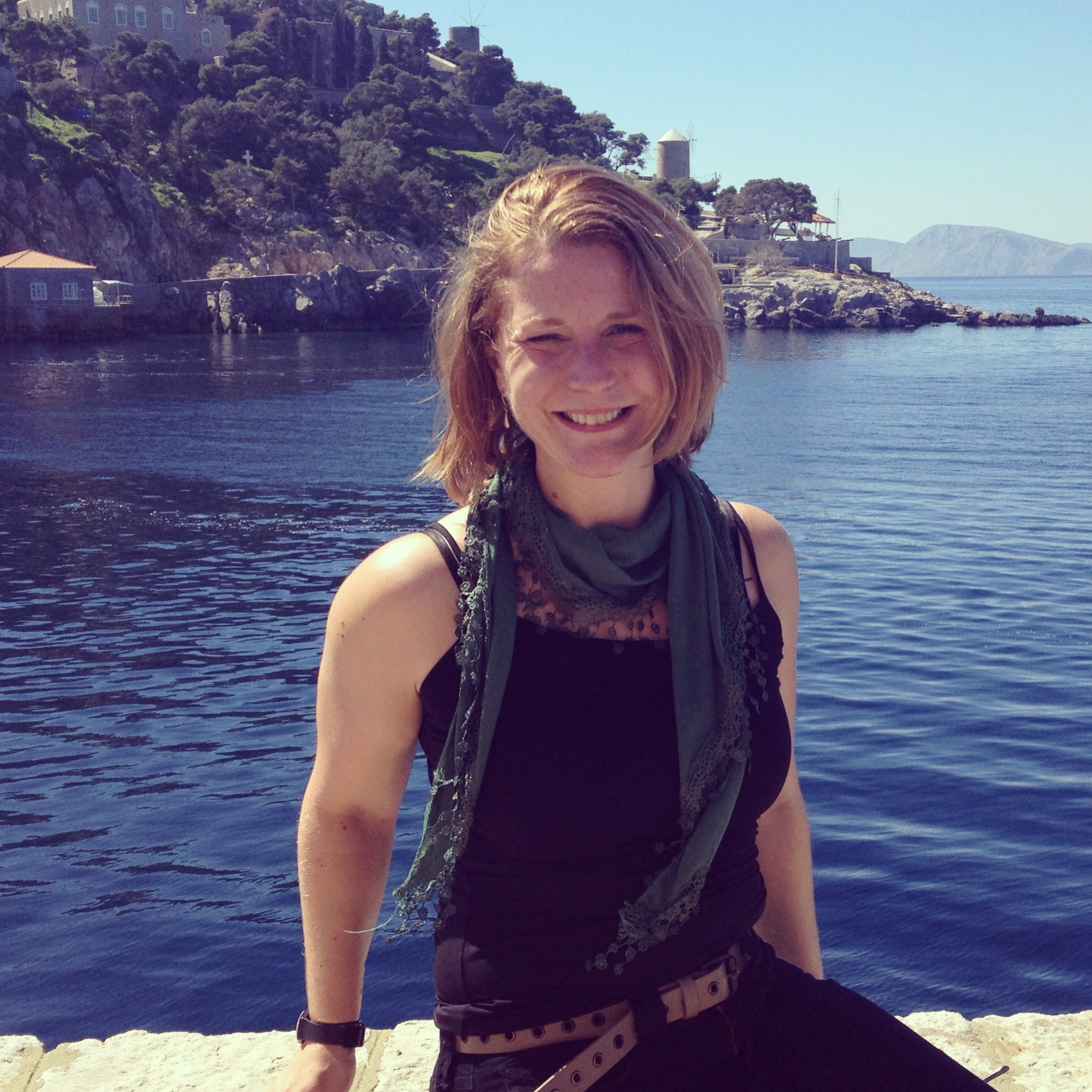
International lawyer Megan Kossiakoff’s (JD ’06) young career
has taken her on a whirlwind world tour, from countries in Eastern Europe to
sub-Saharan Africa, and soon Central Asia. But her journey began right here in Chicago,
with the discovery of a medieval manuscript at a museum exhibition.
Kossiakoff focused her undergraduate and graduate studies in
history and the arts, earning a master’s degree from the School of the Art
Institute of Chicago. While a graduate student, she worked in local museums coordinating
exhibitions that involved obtaining copyright permission for images. That’s
when she discovered the story of the Sarajevo Haggadah, an illuminated
manuscript that tells the story of the Jewish exodus from Egypt.
Impressed by the measures museum officials and community
members took to protect the manuscript during the 1990s Bosnia-Herzegovina
conflict, she focused her master’s thesis on the practical aspects of
protecting cultural heritage during the conflict. With a desire to dig deeper
into cultural heritage studies, Kossiakoff enrolled at DePaul College of Law.
“In my mind, [DePaul] was the only place to go because of the
unique opportunity to focus on this area of law and work with one of the
world’s top experts,” Kossiakoff said. She was drawn to DePaul’s strong
cultural heritage law program and the work of Professor Patty Gerstenblith
through the Center for Art, Museum & Cultural Heritage Law.
While at DePaul, Kossiakoff served as an editor of the DePaul
Journal of Art and Entertainment Law (now the Journal of Art, Technology &
Intellectual Property Law), and interned at the Field Museum of Natural
History, the U.S. Department of State’s Cultural Heritage Center, and the Art
Law Department at Herrick Feinstein LLP.
After earning her JD, Kossiakoff took a position as a law clerk
with the United Nations International Criminal Tribunal for the Former
Yugoslavia (ICTY), in the Hague, Netherlands. Following her work with the ICTY,
she stayed in the Netherlands and enrolled in an LLM program in public
international law at Leiden University. Since then, Kossiakoff’s legal career
has taken her from one international post to another.
Kossiakoff’s next stop was Kosovo. There, she served as a
legal advisor to the International Civilian Office (ICO), an intergovernmental
organization with the mandate to supervise and support Kosovo’s government in
its process to become a fully independent state. At the ICO, she worked extensively
on drafting legislation to ensure that sites of religious and cultural significance
would be protected.
Kossiakoff credits DePaul and the skills learned in cultural
heritage law and legal writing programs with impacting her professional
success. “In international environments, you are often working in
English-language environments with people who are not native English speakers.
It is hugely valuable to an organization to have someone who has excellent
legal drafting skills, which is something that DePaul taught me.”
By the end of her stretch in Kosovo, Kossiakoff was the head
of the ICO’s legal unit and was directly involved in drafting constitutional
amendments to help end Kosovo’s supervised independence.
“As part of my position with the ICO in Kosovo, I was able to
draft legislation that required government officials and religious leaders from
the minority community to work together to protect cultural heritage. It was an
important part of the post-conflict reconciliation process.”
After a brief assignment with the World Bank, Kossiakoff moved
on to her next post with the International Development Law Organization (IDLO)
in Juba, South Sudan. She supported the constitutional review process in South
Sudan by drafting sample text for inclusion in the permanent constitution and
advising committees of the National Constitutional Review Commission, a process
that stalled in 2013 when South Sudan ultimately descended into civil war.
“I joke that as my career progresses my living conditions get
far worse. I spent nearly a year living in a shipping container in South Sudan
having very little freedom of movement,” Kossiakoff said. “You have to think
creatively to get work done when there are so many unforeseen events and
restrictions.” Since leaving South Sudan, Kossiakoff has worked with the
Organization for Security and Cooperation in Europe (OSCE) as a monitoring
officer in Ukraine. But she will soon be relocating again, rejoining the IDLO,
the only intergovernmental organization with the mandate to promote the rule of
law, as a legal counsel for their program in Afghanistan.
Kossiakoff will be based in Rome and will travel regularly
to Kabul. “Going to difficult places like South Sudan or Afghanistan can be
incredibly challenging on a professional and personal level,” admitted
Kossiakoff. “I originally saw myself as a headquarters person, but found that
working in hardship locations is far more rewarding than I ever imagined.”